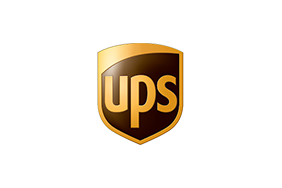UPS Expands Real-World Testing of Hydrogen Fuel Cell Technology
Published 08-26-04
Submitted by UPS
"Shifting away from a fossil fuel based economy to a hydrogen economy would be a great environmental and technological achievement," said Chris Mahoney, UPS senior vice president of global transportation services. "UPS now is jumping from a small fuel cell car to a medium-duty truck. We will continue the rapid application of this technology in hopes that in the near future, we can deploy zero-emission engines across our fleet of 88,000 vehicles."
Mahoney made his remarks at a press conference here in Los Angeles where the first fuel cell Dodge Sprinter is being deployed. He was joined by representatives from DaimlerChrysler, the U.S. Environmental Protection Agency (EPA), the Department of Energy and the state of California. The remaining two Sprinters will be deployed in Sacramento and Ann Arbor, Mich.
In May 2003, UPS, EPA and DaimlerChrysler announced a collaborative project to advance the state of hydrogen fuel cells by harnessing the technology to power the first commercial delivery fleet in North America. Starting in March 2004, DaimlerChrysler provided an "F-Cell," a fuel cell-powered Mercedes-Benz A-Class car, which UPS modified for early-morning package deliveries in southeastern Michigan. The car is fueled daily at the EPA's hydrogen fueling station at its National Emissions Testing Laboratory in Ann Arbor. DaimlerChrysler and UPS concurrently began testing a medium-duty vehicle in Germany. The new Dodge Sprinters were built in part on information gathered during these road tests.
"Our two test programs showed the on-road reliability of fuel cell vehicles is excellent, equivalent to our current fleet," said Mahoney. "But what's truly exciting is how fast the technology is progressing."
According to DaimlerChrysler, compared to the first Sprinter, the new fuel cell Sprinters feature a 20% increase in powertrain efficiency; a 40% increase in range to 155 miles, and a 45% increase in peak engine power. They now have similar acceleration as a gas- or diesel-powered UPS vehicle.
Customers will be able to recognize the trucks not only because of their signature brown color and UPS logo, but also by special graphics on the sides that feature concentric circles rippling outwards, representing water. Fuel cell technology works by converting chemical energy - in this case, hydrogen reacting with oxygen - into electricity without combustion. The reaction produces water vapor and heat as the only byproducts.
Mahoney added UPS is excited by the prospect of a significant reduction in maintenance expenses since the drive train will last longer than a gas or diesel engine.
The vehicles in their new configuration also offer a 10% increase in cargo capacity compared to the diesel-powered Sprinters now in use by UPS, and the fuel cell technology eliminates the need to house an engine in the front of the vehicle, making it easier to explore new automotive designs, he added.
The UPS executive said one of the remaining hurdles is the need for more hydrogen refueling stations.
"While it's still more expensive to manufacture a fuel cell vehicle, DaimlerChrysler is working hard to perfect the technology and lower those costs. The refueling infrastructure is the next critical need," Mahoney concluded. "Only by making hydrogen as broadly available as gasoline or diesel can passenger cars and fleets truly reap the environmental and economic benefits."
Fuel cell technology is the latest innovation in UPS's commitment to develop sustainable transport options. For more information on UPS's use of alternative fuel vehicles, please visit www.pressroom.ups.com
UPS is the world's largest package delivery company and a global leader in supply chain services, offering an extensive range of options for synchronizing the movement of goods, information and funds. Headquartered in Atlanta, Ga., UPS serves more than 200 countries and territories worldwide. UPS's stock trades on the New York Stock Exchange (UPS) and the company can be found on the Web at UPS.com.
Except for historical information contained herein, the statements made in this release constitute forward-looking statements within the meaning of Section 27A of the Securities Act of 1933 and Section 21E of the Securities Exchange Act of 1934. Such forward-looking statements, including statements regarding the intent, belief or current expectations of UPS and its management regarding the company's strategic directions, prospects and future results, involve certain risks and uncertainties. Certain factors may cause actual results to differ materially from those contained in the forward-looking statements, including economic and other conditions in the markets in which we operate, governmental regulations, our competitive environment, strikes, work stoppages and slowdowns, increases in aviation and motor fuel prices, cyclical and seasonal fluctuations in our operating results, and other risks discussed in the company's Form 10-K and other filings with the Securities and Exchange Commission, which discussions are incorporated herein by reference.

UPS
UPS
UPS is a global leader in logistics, offering a broad range of solutions including transporting packages and freight; facilitating international trade, and deploying advanced technology to more efficiently manage the world of business. Headquartered in Atlanta, UPS serves 10.6 million customers daily in more than 220 countries and territories worldwide.
For more information, please visit UPS.com or the company’s Sustainability website, ups.com/sustainability. View and subscribe to UPS Horizons, our sustainability newsletter, by visiting ups.com/sustainabilitynewsletter.
More from UPS

